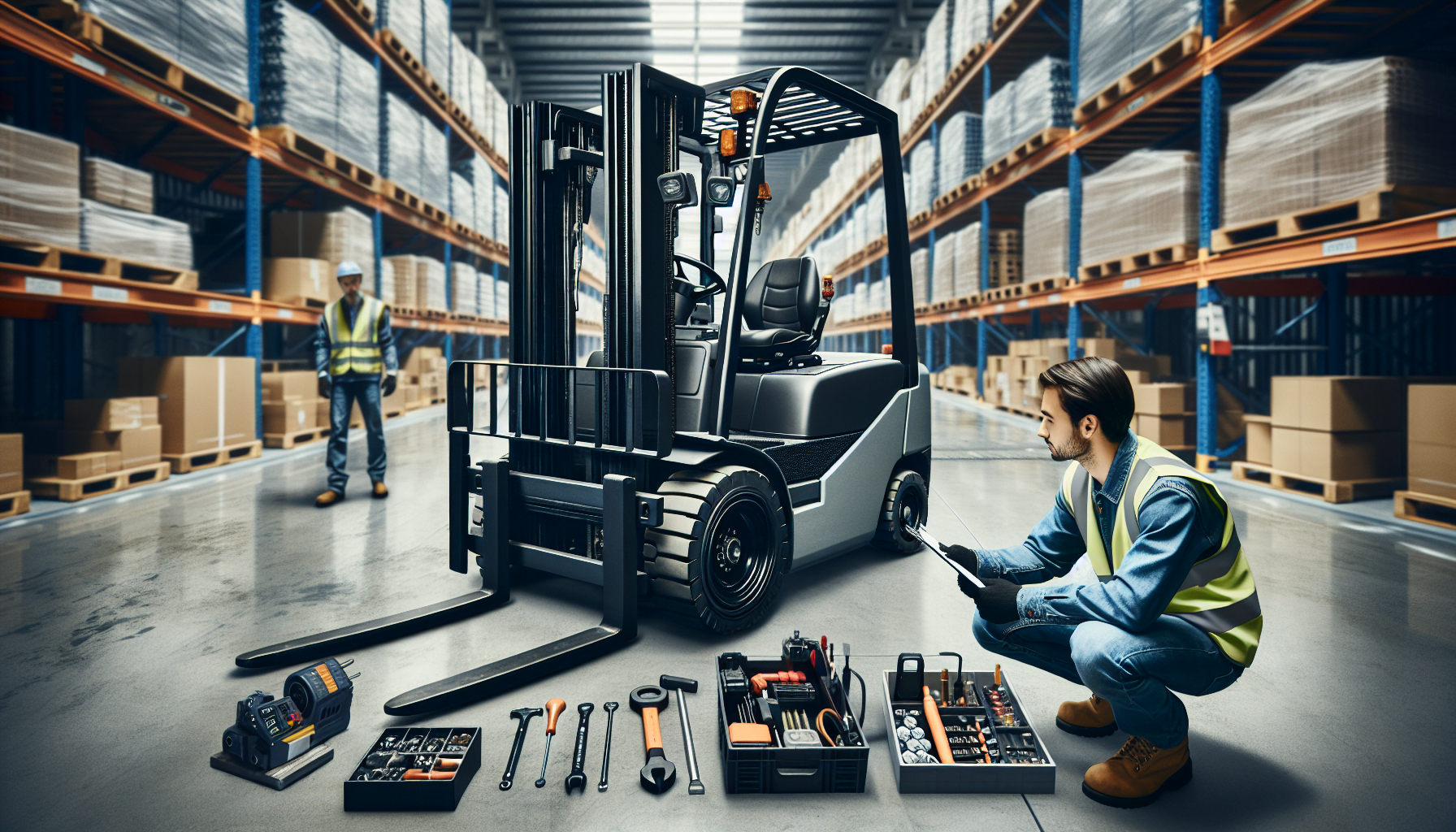When it comes to warehouse operations, one of the most crucial aspects to consider is forklift maintenance. Forklifts are an integral part of warehouse operations, helping to move and transport heavy loads efficiently. However, without regular maintenance and upkeep, forklifts can become less reliable, leading to decreased productivity and potential safety hazards.
The Importance of Forklift Maintenance
Implementing proper forklift maintenance guidelines is essential for several reasons:
- Ensuring Safety: Well-maintained forklifts are less likely to break down or malfunction, reducing the risk of accidents and injuries in the warehouse.
- Minimizing Downtime: Regular maintenance helps identify and address minor issues before they turn into major problems, preventing unexpected breakdowns that can disrupt warehouse operations.
- Extending Lifespan: Proper maintenance practices can prolong the lifespan of forklifts, saving businesses the cost of premature replacements.
- Optimizing Performance: Well-maintained forklifts operate at peak performance, resulting in increased efficiency and productivity within the warehouse.
Now that we understand the importance of forklift maintenance, let’s explore some guidelines that can help businesses implement effective maintenance practices:
1. Create a Maintenance Schedule
Developing a comprehensive maintenance schedule is crucial for keeping track of regular maintenance tasks and ensuring that they are performed on time. The schedule should include routine maintenance activities such as oil changes, filter replacements, brake inspections, and battery checks.
By adhering to a maintenance schedule, businesses can avoid overlooking important tasks and ensure that the forklifts receive the necessary care they need to operate optimally.
2. Train Employees in Forklift Maintenance
Since forklift maintenance involves technical knowledge and skills, it is essential to train employees who are responsible for performing maintenance tasks. Training should cover basic maintenance procedures, safety precautions, and the use of tools and equipment required for maintenance.
By properly training employees, businesses can ensure that maintenance tasks are carried out correctly and reduce the risk of potential mistakes that could impact forklift performance.
3. Regular Inspections
In addition to routine maintenance, regular inspections are necessary to identify any potential issues or impending problems. Inspections should cover various components of the forklift, including tires, brakes, steering, hydraulics, and electrical systems.
During inspections, any signs of wear and tear, leaks, or loose fittings should be immediately addressed to prevent further damage. Conducting inspections on a regular basis helps catch problems early on and prevents costly repairs or replacements.
4. Use Genuine Parts
When it comes to replacing parts or components in forklifts, it is crucial to use genuine parts from reputable manufacturers. Genuine parts are specifically designed for compatibility and optimal performance, ensuring the longevity and reliability of the forklift.
Using inferior or counterfeit parts may result in poor performance, increased downtime, and even safety hazards. Investing in genuine parts is a worthwhile investment that ensures the forklift operates at its best.
5. Maintain Cleanliness
Keeping the forklift clean is an essential part of maintenance. Regularly cleaning the forklift helps remove dirt, debris, and other contaminants that can accumulate and lead to premature wear and tear.
Pay special attention to the various components, including the engine, filters, radiator, and battery compartment. Cleanliness not only enhances the appearance of the forklift but also plays a role in preventing mechanical issues.
6. Schedule Professional Inspections
While regular inspections and maintenance tasks can be performed in-house, scheduling professional inspections at regular intervals is also beneficial. Professional technicians have the expertise and specialized tools to conduct in-depth inspections and identify any underlying issues that may go unnoticed during routine maintenance.
Professional inspections can provide valuable insights, ensuring that the forklifts are operating at their peak performance and compliance with safety regulations.
HCO Innovations specializes in turnkey forklift maintenance solutions that can assist your business in implementing effective maintenance practices. Their services include scheduled maintenance, inspections, and repairs to ensure that your forklifts operate safely and optimally.
Conclusion
Forklift maintenance is a vital aspect of warehouse operations that should not be overlooked. By implementing proper maintenance guidelines, businesses can ensure the safety of their employees, prevent costly breakdowns, optimize forklift performance, and extend their lifespan. Whether through creating maintenance schedules, training employees, conducting regular inspections, using genuine parts, maintaining cleanliness, or scheduling professional inspections, businesses can proactively maintain their forklifts and reap the benefits of an efficient and safe warehouse environment.

